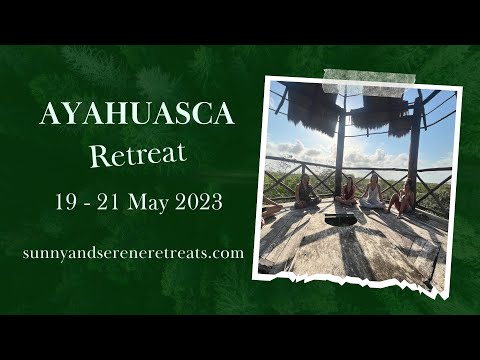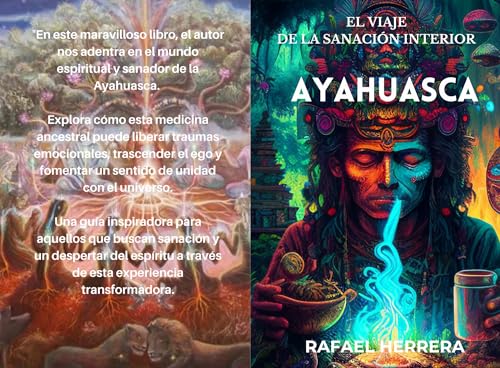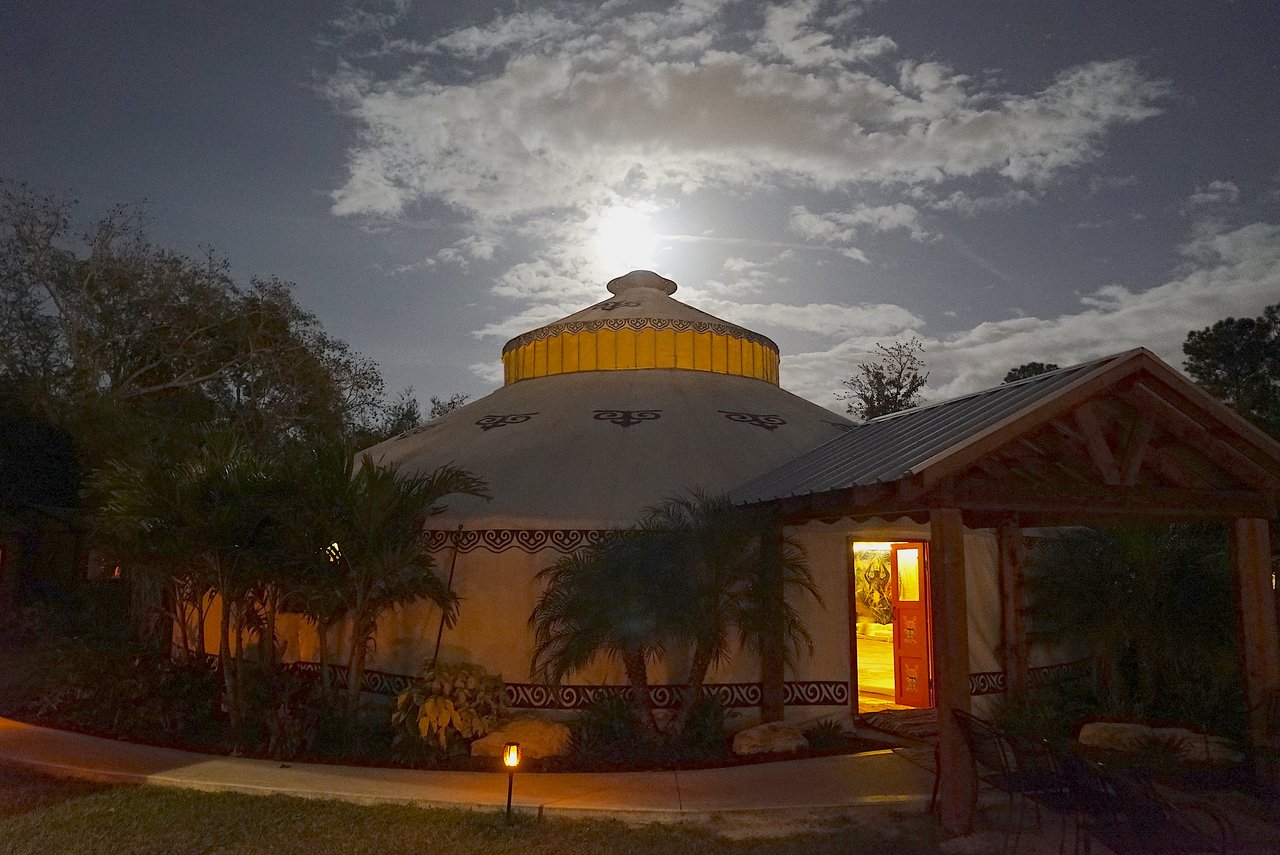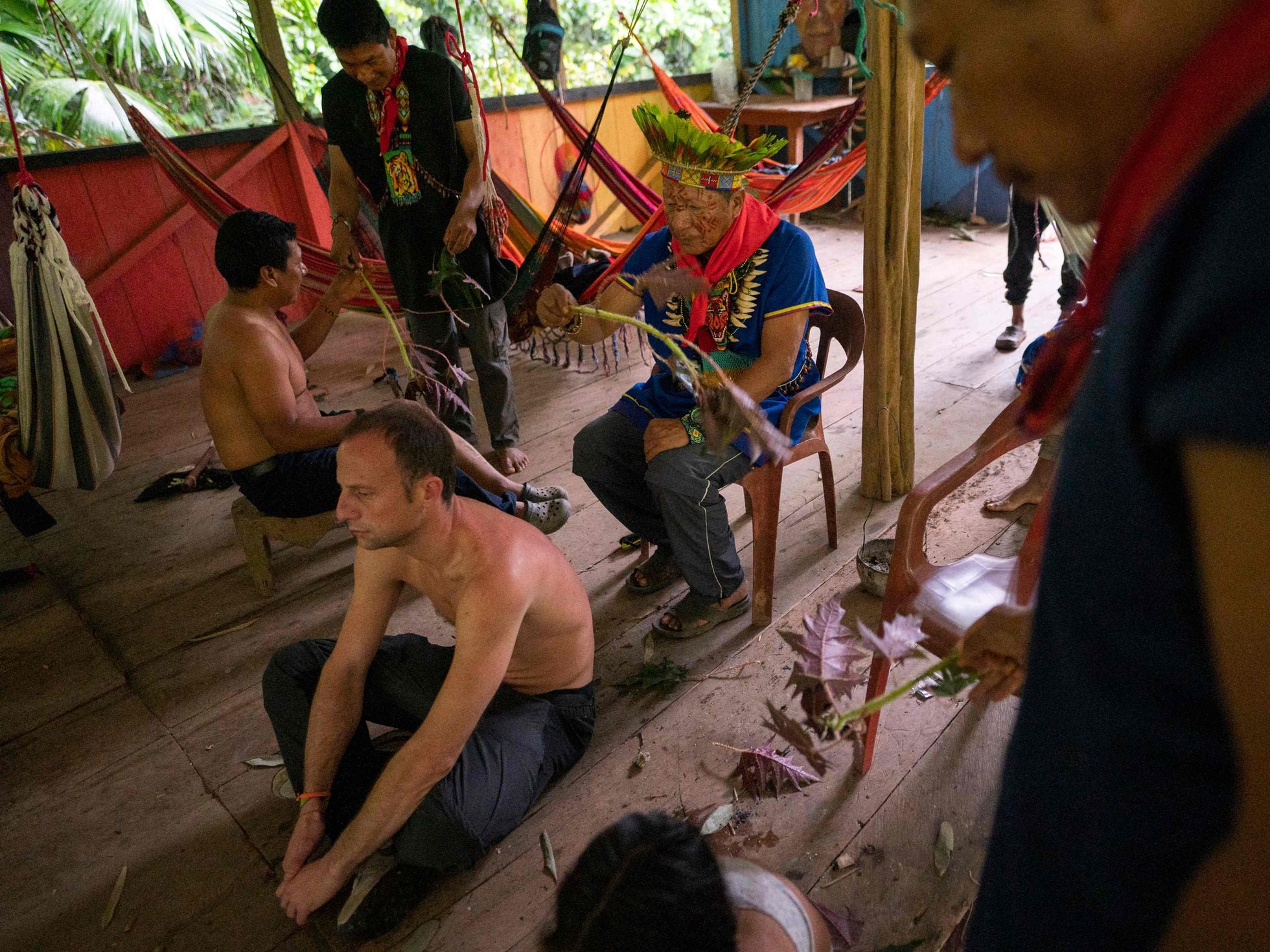Welcome to Ayahuasca Experience, your beacon in exploring the transformative world of healing. Dive into our latest article unraveling the mysteries of Ayahuasca Retreats in Boston, a journey not just of distance, but deep into the self.
Exploring Ayahuasca Retreats in Boston: A Journey Towards Inner Healing and Transformation
In the bustling city of Boston, far from the Amazon rainforest where ayahuasca originates, seekers of spiritual growth and healing are turning towards ayahuasca retreats as a means to tap into their inner selves and embark on a journey of transformation. These retreats offer a unique convergence of ancient shamanic wisdom and modern therapeutic practices designed to facilitate deep personal insight and emotional release.
The typical ayahuasca retreat experience in Boston involves a series of ceremonies, each carefully crafted to create a safe and supportive environment for participants. With the guidance of experienced facilitators who have trained under indigenous shamans, attendees are invited to explore the depths of their psyche. It’s important to note that while Boston is far removed from the traditional setting of ayahuasca use, the ceremonial spirit and respect for the plant medicine are meticulously preserved.
During the ceremonies, participants ingest the ayahuasca brew, a combination of the Banisteriopsis caapi vine and other plants, which together activate psychoactive properties. This powerful concoction has been used for centuries by indigenous tribes for its profound ability to induce altered states of consciousness, leading to potential spiritual awakenings and psychological healing.
The experience of drinking ayahuasca can be intense and deeply personal. Participants often report experiencing vivid visions, emotional breakthroughs, and a strong sense of connection with nature and the universe. What makes ayahuasca retreats in Boston particularly appealing is the integration of such mystical experiences with therapeutic sessions, including group sharing, one-on-one counseling, and various forms of bodywork to help process and ground the experiences.
Moreover, the community that forms during ayahuasca retreats often provides a network of support that extends beyond the duration of the retreat itself. The shared journey of exploring consciousness and confronting personal challenges fosters a bond between attendees, creating a nurturing space for continued personal growth and healing.
Safety is paramount at any reputable ayahuasca retreat. Organizers ensure that medical screening, preparation guidelines, and proper facilitation are in place to promote the well-being of all participants. However, it is crucial for those interested to conduct thorough research, as the legal status of ayahuasca can be complex, given that it contains dimethyltryptamine (DMT), a controlled substance in many jurisdictions.
In conclusion, ayahuasca retreats in Boston represent a convergence of tradition and modernity, offering a path to inner healing and transformation. Through careful preparation, guidance, and support, participants can navigate the profound experiences ayahuasca offers, paving the way for lasting change and personal evolution.
Can Ayahuasca Give An Intense Spiritual Experience? Sadhguru Answers
The Niagara Falls of Vomit with Trixie and Katya | The Bald & the Beautiful
Is ayahuasca legal in the United States?
Ayahuasca itself is not legal in the United States, as it contains Dimethyltryptamine (DMT), a Schedule I controlled substance under the United States Controlled Substances Act. DMT is classified as a drug with no currently accepted medical use and a high potential for abuse.
However, there are exceptions to this rule. A notable exemption exists for religious groups that use ayahuasca as a sacrament. For instance, the U.S. Supreme Court recognized the legality of ayahuasca for religious purposes in the 2006 case Gonzales v. O Centro Espirita Beneficente Uniao do Vegetal, which held that the U.S. branch of a Brazilian church could legally use ayahuasca in their ceremonies under the Religious Freedom Restoration Act (RFRA).
As a result, there are certain churches, such as the União do Vegetal (UDV) and Santo Daime, that legally facilitate ayahuasca ceremonies in the United States. These groups have been granted protection to use the tea as a sacrament within their religious practices.
Outside of these specific religious contexts, ayahuasca remains illegal in the U.S., and participating in or hosting an ayahuasca ceremony can lead to legal consequences. Despite its illegality, underground ayahuasca ceremonies do take place across the country, but they operate in a legal gray area and participants may be at risk of arrest and prosecution.
For those seeking ayahuasca retreats and healing, it’s important to recognize that traveling to countries where ayahuasca is legal – such as Peru, Brazil, and Ecuador – is often how individuals legally experience ayahuasca ceremonies. Care should always be taken to ensure that any participation in such activities is within the legal framework of the relevant jurisdiction.
What occurs during an ayahuasca retreat?
During an Ayahuasca retreat, participants embark on a journey that is as much internal as it is external. Traditionally held in regions where ayahuasca is indigenous, such as the Amazon basin of Peru, Brazil, Colombia, and Ecuador, these retreats aim to provide a structured environment for experiencing the Ayahuasca sacrament, which is a powerful and sacred plant-based brew known for its profound psychoactive effects.
Preparation: Before the ceremony, there’s often a period of preparation which can include dietary restrictions, known as a dieta, abstaining from alcohol, drugs, and sometimes even sexual activity. This is believed to purify the body and increase sensitivity to the medicine.
Intention Setting:: Participants are usually encouraged to set intentions or focus on specific areas of their lives that they wish to explore or heal.
The Ceremony: Ayahuasca ceremonies are typically led by an experienced shaman or facilitator, who guides participants through the experience. These sessions are usually conducted at night and can last several hours. During the ceremony, each participant consumes the ayahuasca brew. The shaman may use traditional songs, called icaros, musical instruments, and prayers to facilitate the spiritual journey.
Psychoactive Experience: The active ingredients in the brew, DMT and harmala alkaloids, induce a state of altered consciousness. Participants might have intense visual and auditory hallucinations, experience profound emotional and psychological revelations, or confront challenging aspects of their psyche.
Integration:: After the ceremony, participants often gather to share experiences and insights. Integration is a key part of the process, where individuals work on interpreting and incorporating their experiences into their daily lives. This can involve discussions, additional therapeutic practices, or guidance on how to apply the lessons learned from ayahuasca.
It’s important to note that ayahuasca is not without its risks and is not suitable for everyone. It can interact with certain medications and medical conditions, and the intense nature of the experience can be psychologically overwhelming for some. Therefore, thorough screening, professional guidance, and consideration of the legal status of ayahuasca in the country where the retreat is held are crucial components of a safe and beneficial ayahuasca retreat.
How much is the cost of the Kentucky ayahuasca retreat?
As of my last update, a specific price for a Kentucky ayahuasca retreat isn’t readily available because the cost can vary widely depending on the facility, the length of the retreat, the amenities offered, and the level of support provided.
Ayahuasca retreats in the United States, including those in Kentucky, operate in a legal gray area, as ayahuasca contains DMT, a substance that is classified as a Schedule I drug under United States federal law. However, some churches have been granted exemptions to use ayahuasca as a sacrament.
For retreats that are legally operating, costs typically range from $1,500 to $3,000 for a weekend or short retreat, while longer retreats might cost more. This price usually includes accommodations, meals, and multiple ayahuasca ceremonies, as well as other supportive activities such as yoga, meditation, and integration sessions with facilitators or counselors.
To find out the exact cost of a Kentucky ayahuasca retreat, you would need to contact the retreat center directly or visit their website for the most current pricing information. Remember to inquire about what the retreat fee covers, to ensure there are no hidden costs. Additionally, it’s important to do thorough research and choose a retreat that maintains high safety and ethical standards, as the experience and the aftermath can be very intense and require professional, experienced guidance.
Where is the ayahuasca haven located?
The term «ayahuasca haven» could refer to a location or a retreat center dedicated to providing ayahuasca ceremonies and healing experiences. Ayahuasca havens are often located in regions where the ayahuasca vine and chacruna leaves – the primary ingredients in the ayahuasca brew – are native and hold cultural significance. The most prominent of these areas include countries in the Amazon basin, such as Peru, Brazil, Colombia, and Ecuador. Numerous retreat centers are also found in Iquitos and Pucallpa in Peru, which are considered some of the main hubs for ayahuasca tourism.
It’s important for individuals seeking an ayahuasca retreat to conduct thorough research to ensure that the center they choose is reputable and conducts ceremonies with respect for safety, tradition, and sustainability. Many retreats offer a combination of traditional shaman-led ayahuasca ceremonies, integration services, and additional healing practices. It’s worth noting that some ayahuasca retreats have also opened outside of South America, across North America and Europe; however, legal restrictions often apply as ayahuasca contains DMT, a substance that is controlled in many countries.
Frequent Questions
What are the top-rated ayahuasca retreat options near Boston for individuals seeking healing and spiritual growth?
As of my last update, there are no Ayahuasca retreats legally operating in or near Boston due to United States regulations on Ayahuasca, which contains the controlled substance DMT. However, individuals often travel abroad for such experiences. Countries like Peru, Costa Rica, and Ecuador offer well-regarded Ayahuasca retreats focusing on healing and spiritual growth. It is important for seekers to thoroughly research and choose reputable centers that prioritize safety, experienced facilitators, and have robust support systems in place.
How can I ensure a safe and authentic ayahuasca retreat experience in the Boston area?
To ensure a safe and authentic ayahuasca retreat experience in the Boston area, it is crucial to research the retreat center and facilitators thoroughly. Look for those with qualified and experienced shamanic practitioners. Check for positive testimonials and reviews from previous participants. Confirm that they provide a supportive setting and follow safety protocols, including medical screenings and aftercare support. Lastly, make sure the center operates with respect for indigenous traditions and sources ayahuasca ethically.
Are there any legal considerations to be aware of when participating in an ayahuasca retreat near Boston?
Yes, there are legal considerations when participating in an ayahuasca retreat near Boston. Ayahuasca contains dimethyltryptamine (DMT), which is a Schedule I controlled substance in the United States. This means its use is highly regulated and generally illegal. However, courts have granted some religious exceptions for ayahuasca use. It is essential to ensure that the retreat operates within these legal exemptions and participants should verify the retreat’s legal status before attending. Always consult with a legal professional for current and applicable advice.
In conclusion, the emergence of Ayahuasca retreats in Boston offers a unique and powerful opportunity for individuals seeking personal growth, emotional healing, and spiritual exploration. As we’ve discussed throughout this article, the integration of ancient Amazonian traditions into a modern urban context allows participants to embark on transformative journeys without having to travel to distant rainforests.
While it’s crucial to approach these experiences with respect, preparation, and guidance from experienced facilitators, Boston’s Ayahuasca retreats are becoming a beacon for those pursuing profound inner change. The retreats underscore the adaptability of traditional healing practices into new environments and the universal quest for meaning that transcends geographic boundaries.
For those in Boston or the surrounding areas interested in exploring the depths of their consciousness, these retreats represent a significant step towards understanding the self and the interconnectedness of life. With the commitment to safety, authenticity, and honoring the sacred nature of Ayahuasca, these retreats stand out as a testament to the resiliency of indigenous wisdom and its relevance in contemporary society.
Remember, the journey within is perhaps the most challenging yet rewarding adventure one can undertake. If you’re considering participating in an Ayahuasca retreat, do so with an open heart, a clear intention, and the courage to confront and embrace whatever you may discover.
As the presence of Ayahuasca continues to grow in cities like Boston, so too does the potential for healing and transformation within our communities. May those who choose to walk this path find the clarity, peace, and wholeness they seek. Ayahuasca Retreat and Healing can serve as a profound catalyst for change, but ultimately, the journey is yours to make.






